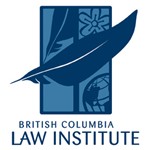Lawyer-Client Interaction: Law Society of BC’s Publications Dealing with Billing, Filing Complaints and Lawyers’ Code of Conduct
You are facing a legal problem and you have reached a point where you decide to hire a lawyer. You want to make sure you use their time well, but how do you do that? The Law Society of British Columbia has published a number of helpful guides to assist clients who are seeking legal assistance and generally trying to learn more about lawyers’ professional code of conduct.
You and Your Lawyer is a brochure that describes the working relationship between lawyer and client. Here you will find out about when to seek legal services, how to prepare for your initial meeting with your lawyer, how lawyers set their fees as well as ways to reduce your legal costs.
Sometimes, you may have a complaint about your lawyer. Complaints About Lawyers explains what types of complaints the Law Society can investigate, and how to go about filing a complaint. It’s also a good source for finding out about professional standards and ethics governing lawyers.
Clicklaw offers complementary resources on this topic. Check out our commonly asked questions: My lawyer’s bill is too high , How do I make a complaint against my lawyer?


